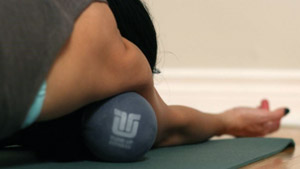[btn link=”#”]By Christina M. Khoury, M.D.[/btn]
If you’ve been an active person much of your life—playing sports, running, etc.—your knees may feel the wear and tear. Add some osteoarthritis or rheumatoid arthritis to the mix, and the damage and pain may be severe enough to consider knee replacement surgery.
You could be a candidate if you have trouble walking, climbing stairs, and getting in and out of chairs. You also may be experiencing moderate or severe knee pain while at rest.
Having knee replacement surgery is a decision you should weigh carefully with your orthopedic surgeon. If you decide it can improve your quality of life, don’t wait until you’re disabled—doing so can make rehabilitation more difficult.
Knee replacement surgery continues to evolve and has a 97 percent success rate. Advancements include:
• Improvements in the materials used in artificial joints. The plastic is a higher performing polyethylene than 10 years ago.
• Computer-assisted surgery that uses infrared markers and a computer’s precision to serve as the orthopedic surgeon’s GPS. These tools allow the surgeon to navigate the joint and the patient’s unique anatomy.
• Image-guided surgery with digitized CT scans. These help align the new joint more precisely.
You typically start walking the day of surgery with the help of a device called a Secure Track. The ceiling-mounted monorail system at John C. Lincoln North Mountain Hospital fully supports you as you take your first steps with your new joint.
In addition, on the day of surgery, a physical therapist shows you how to exercise your new knee. Continuing to do the knee-strengthening exercises several times a day once you go home from the hospital will help you achieve optimal range of motion and flexibility with your new joint.
Within four to six weeks of surgery, you should be able to resume your normal daily activities. After you’ve recovered, you can enjoy almost any kind of physical activity that you enjoy, on a regular basis.
How long will your artificial joint last? The jury’s still out, but if you follow your surgeon’s advice and maintain your ideal weight, it could last as long as 20 years.










































